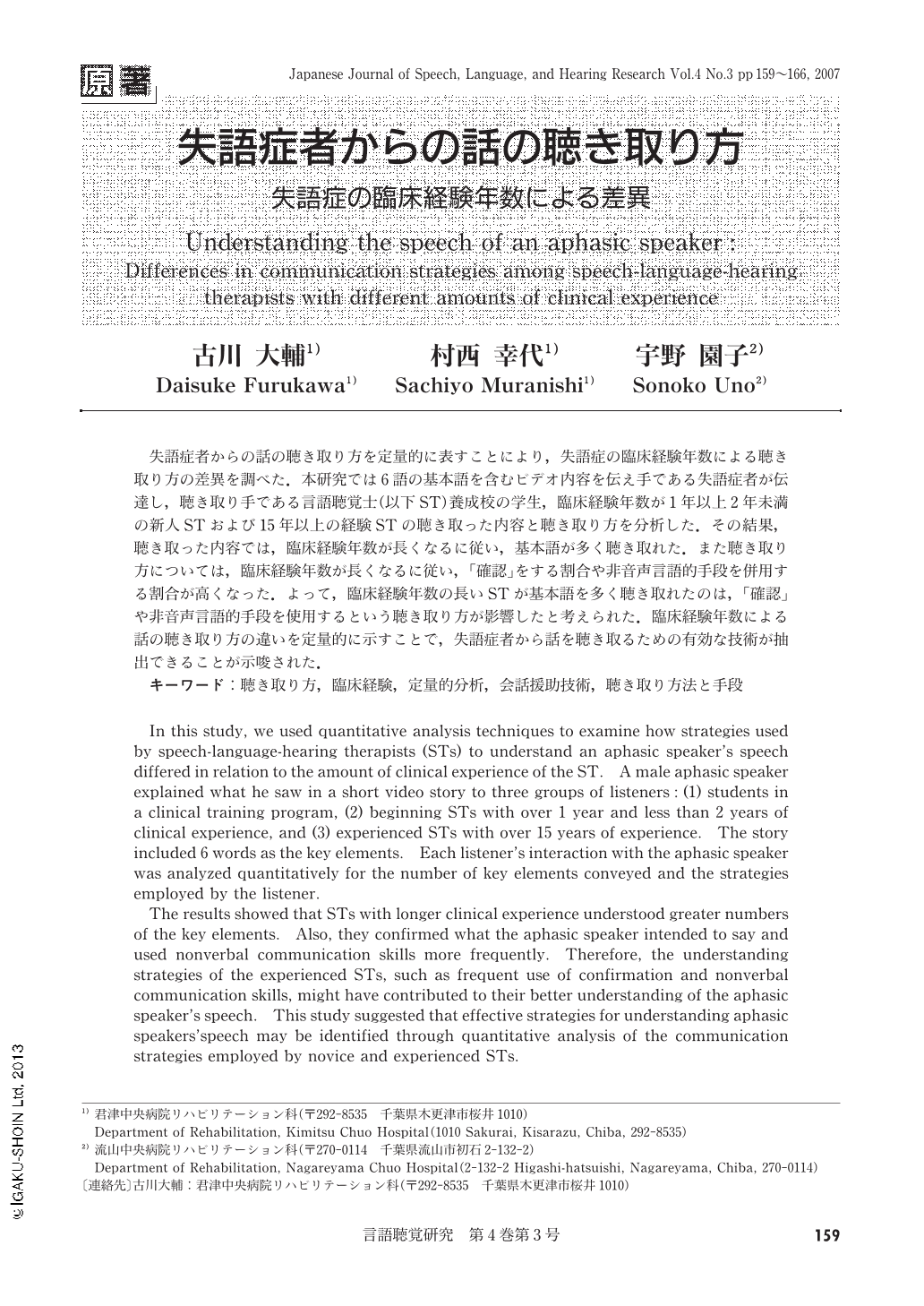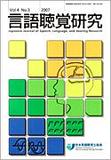Japanese
English
- 有料閲覧
- Abstract 文献概要
- 1ページ目 Look Inside
- 参考文献 Reference
- サイト内被引用 Cited by
失語症者からの話の聴き取り方を定量的に表すことにより,失語症の臨床経験年数による聴き取り方の差異を調べた.本研究では6語の基本語を含むビデオ内容を伝え手である失語症者が伝達し,聴き取り手である言語聴覚士(以下ST)養成校の学生,臨床経験年数が1年以上2年未満の新人STおよび15年以上の経験STの聴き取った内容と聴き取り方を分析した.その結果,聴き取った内容では,臨床経験年数が長くなるに従い,基本語が多く聴き取れた.また聴き取り方については,臨床経験年数が長くなるに従い,「確認」をする割合や非音声言語的手段を併用する割合が高くなった.よって,臨床経験年数の長いSTが基本語を多く聴き取れたのは,「確認」や非音声言語的手段を使用するという聴き取り方が影響したと考えられた.臨床経験年数による話の聴き取り方の違いを定量的に示すことで,失語症者から話を聴き取るための有効な技術が抽出できることが示唆された.
In this study, we used quantitative analysis techniques to examine how strategies used by speech-language-hearing therapists (STs) to understand an aphasic speaker's speech differed in relation to the amount of clinical experience of the ST. A male aphasic speaker explained what he saw in a short video story to three groups of listeners:(1) students in a clinical training program, (2) beginning STs with over 1 year and less than 2 years of clinical experience, and (3) experienced STs with over 15 years of experience. The story included 6 words as the key elements. Each listener's interaction with the aphasic speaker was analyzed quantitatively for the number of key elements conveyed and the strategies employed by the listener.
The results showed that STs with longer clinical experience understood greater numbers of the key elements. Also, they confirmed what the aphasic speaker intended to say and used nonverbal communication skills more frequently. Therefore, the understanding strategies of the experienced STs, such as frequent use of confirmation and nonverbal communication skills, might have contributed to their better understanding of the aphasic speaker's speech. This study suggested that effective strategies for understanding aphasic speakers'speech may be identified through quantitative analysis of the communication strategies employed by novice and experienced STs.

Copyright © 2007, Japanese Association of Speech-Language-Hearing Therapists. All rights reserved.


